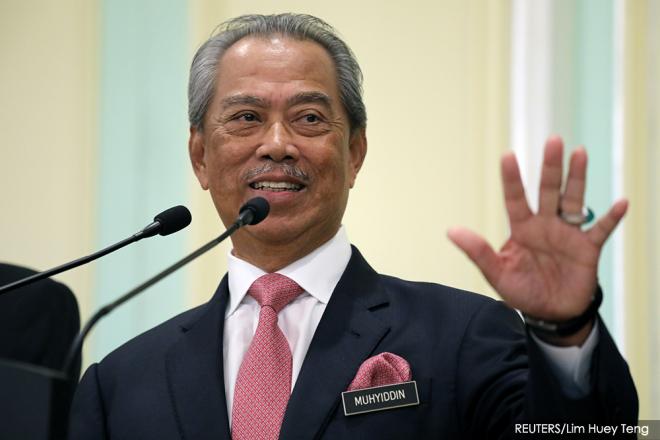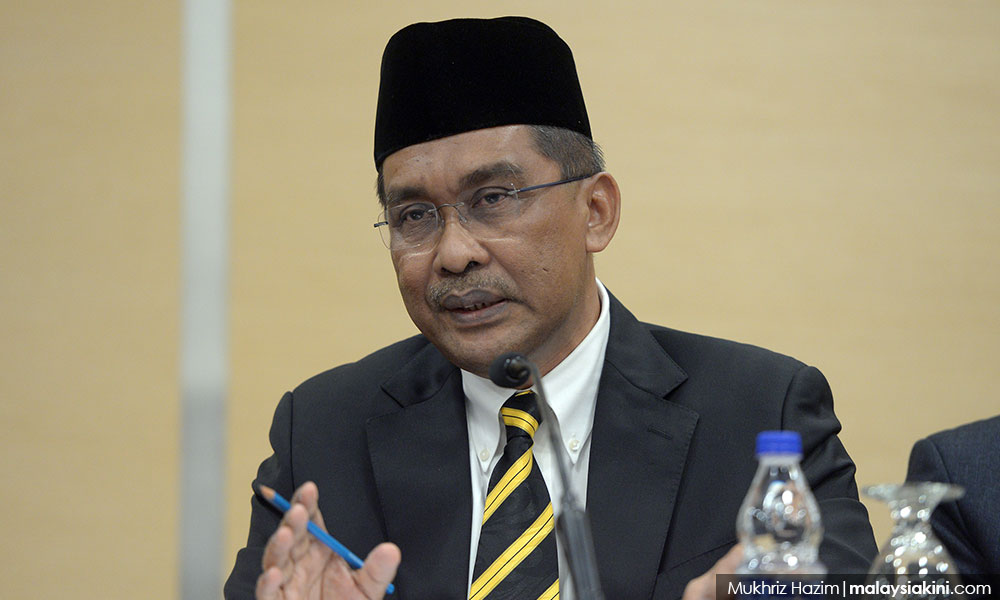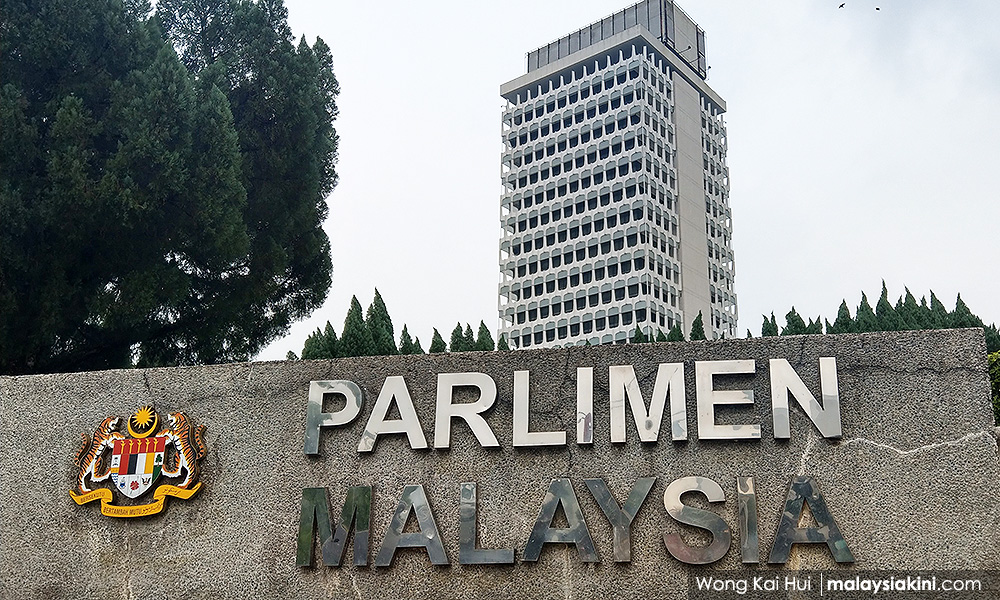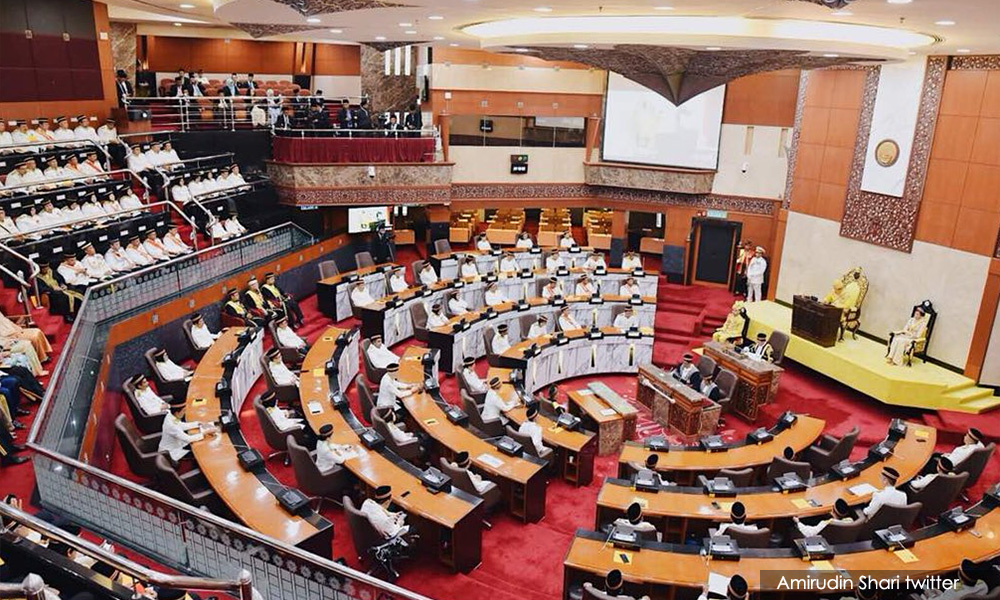
When I was in Universiti Malaya in the early 1990s, all arts and social science undergraduates had to enrol for a course on the Malaysian Constitution. It was one of the best things the university could have done to educate me about democracy.
The course taught me that the check and balance system is at the heart of a healthy parliamentary democracy. The three branches of government – the executive, legislature and judiciary – are like the three legs of a stool. Remove or weaken one leg, and with enough stress, the stool will collapse.
Unfortunately, we can’t make it mandatory for our politicians to pass a course on Parliament and democracy. At the same time, there have been unnecessary distractions from recent personality-driven headlines around our Parliament.
Instead of being distracted, let’s remember what Parliament is for. And then we can judge whether politicians are acting to support or to dismantle parliamentary check and balance.
Parliament‘s main functions are to scrutinise the executive, to make and change laws, to debate contemporary and critical issues, and to check and approve government spending whether this is the budget or taxes.
Using that as our guide, let’s ask the question: Is Prime Minister Muhyiddin Yassin allowing Parliament to function?
Muhyiddin has decided that because of Covid-19, Parliament should only sit for a day. This position has the enthusiastic support of de facto Law Minister Takiyuddin Hassan (photo) who ticked off protesters of the one-day sitting as having the wrong priorities.

But if Parliament has such critical functions to perform in a democracy, how does having a one-day sitting prioritise Parliament’s role?
Think about it – one day doesn’t even mean 24 hours. Parliament usually sits from 10am to 1pm, and then from 2.30pm to 5pm. That’s a mere 5.5 hours, although hours are sometimes extended, usually when a bill needs to be urgently passed. This won’t be the case in this particular sitting.
With the number of decisions and actions the Perikatan Nasional (PN) government has taken since it came to power without the people’s mandate, and considering the actions it needs to take in the near future, 5.5 hours is hardly sufficient for parliamentary scrutiny.
And there certainly are critical matters that require scrutiny. Here are some examples from Aliran: The government’s RM250 billion economic stimulus package for the pandemic. The harsh penalties against movement control order offenders. Budgetary revisions arising from Covid-19. The Education Ministry’s plans for online learning. The government’s strategies for tackling a global recession. The recent raft of political appointments to government-linked companies.
As Aliran points out: “All of these need to be debated thoroughly. But how can these issues be debated if Parliament does not sit long enough to have a discussion?” More than 72,000 Malaysians agree – they have signed an online petition demanding that Parliament sits for two weeks, beginning May 18. I have signed the petition, too.
Holding a one-day-only parliamentary sitting is a clear sign that Muhyiddin is not interested at all in enabling parliamentary check and balance on his government’s executive powers. More likely, it’s a way to reset the clock so that Muhyiddin’s hold on power isn’t unduly threatened in Parliament.

What do I mean? The Constitution states that the Dewan Rakyat must convene no later than six months from the last sitting. This is to ensure that the executive is regularly scrutinised by another branch of government. The Lower House last met on Dec 5. It was meant to sit again on March 9, right after Muhyiddin was sworn in. But that sitting was postponed to May 18. It’s not hard to imagine why, when Muhyiddin’s support in Parliament then was highly questionable.
By holding a one-day sitting in May, Muhyiddin is fulfilling a constitutional requirement without submitting himself to adequate parliamentary check and balance.
Additionally, Takiyuddin has stressed that the decision to only hold a one-day sitting was “based on current circumstances and developments, in particular, those involved in controlling and ending the threat of the Covid-19 outbreak”.
There is actually nothing current about how the PN government is acting in this regard. In fact, what Malaysia currently has is an amateurish government with an archaic mentality. And the worst part of it is that the government assumes that Malaysians won’t know any better.
Since the Covid-19 lockdowns globally, people with steady internet and smart devices have been meeting remotely on a variety of platforms, with Zoom the most popular. Meetings, training sessions, events, presentations have all migrated online.
The British Parliament has also gone online. On April 21, the House of Commons approved the introduction of remote technology in the key items of questions, urgent questions and ministerial statements.
A maximum of 120 Members of Parliament (MPs) were allowed to use Zoom to join the historic proceedings from home. At the same time, strict physical distancing guidelines were put in place, including capping the number of MPs in chambers to 50 only. Because the introduction of the first hybrid proceedings was so successful, the UK MPs approved a motion to extend it to other business, including legislation.

The Clerk of the House of Commons, John Benger, commented that a pandemic wasn’t going to stop Parliament from “providing a forum for the government to be questioned, scrutinised and held to account by the country’s directly elected MPs.”
It bears noting that the last time the UK’s Parliament could not meet because of an outbreak was in the 14th Century. It was certainly valid for Parliament not to sit seven centuries ago when the bubonic plague was ravaging the country and they had no Zoom.
We’re now in the 21st Century. And we’ve got not just Zoom but a host of other online platforms and the know-how to convert a physical meeting into a remote one. Just ask any number of online trainers or educational institutions or event organisers how they’ve gone remote since Covid-19. Or just search online for free field guides or online workshops going remote. It’s really not rocket science.
And the fact is, the UK isn’t the only country where Parliament has gone online. The European Union Parliament began operating with online voting from March 26. The South African Parliament has also resumed business through virtual meetings. Australia, too, is having a similar conversation about using technology so that Parliament can continue to function.
Indeed, virtual meetings would allow parliamentary committees to meet often so that MPs can continue to be effective.
Despite all this, Muhyiddin continues to insist on using a 14th century model for Parliament. And Takiyuddin attempts to hoodwink us that the PN government’s priorities are the right ones.
Using a long-outdated model and showing a lack of interest in employing technology isn’t just incompetence. It’s amateurish at best, archaic at worst.
But what about Pakatan Harapan?
Harapan and Muhyiddin’s opponents are right to criticise the prime minister’s one-day sitting in the interest of upholding democracy. But they need to be doing much more than just criticise.

The state assemblies of Kedah, Penang, Selangor (photo) and Sabah are currently led by Harapan-friendly chief ministers or menteris besar. They have yet to announce themselves that they will hold their respective state legislative assemblies online.
These states could demonstrate that they will walk the talk. Table your states’ Covid-19 stimulus package for debate, and do it online. Demonstrate that you are capable and willing to be leaders of the future despite a pandemic, unlike an archaic Muhyiddin and his antiquated PN government. Prove to citizens that you’re not just good at criticising your political opponents, you’re also good at leading the way by doing what you expect your political opponent to do.
Just imagine what would happen if Mukhriz Mahathir, Chow Kon Yeow, Amirudin Shari and Shafie Apdal did that. Do you imagine that the state legislators in the opposition would stay away from debating these state governments’ stimulus packages and revised budgets? Would we see opposition state legislators shy away from criticising their state government’s actions and decisions?
We don’t know for certain, of course.
But it would certainly show PN elected representatives as being useless at their jobs if they don’t turn up, on behalf of their constituencies, to check and balance the state government. And if PN state elected representatives do join the debate online, it would be inconsistent for them to defend the actions of an outmoded federal government that insists on acting as if we live in the 14th Century.
And if the motion to extend Parliament to eight days is defeated on May 18, then Harapan should show up an archaic PN government by holding mock parliamentary meetings online. Now, wouldn’t that be far more effective than just loud barking with no bite?
Doing all of that would certainly show up Muhyiddin and the likes of Takiyuddin to be who they really are. Politicians with an archaic model of governing, who clearly don’t want Parliament to scrutinise government actions.
Having a one-day sitting clearly shows what PN’s priorities are, and what they are not. And not taking your legislature’s sittings online – whether you’re from PN or Harapan – also tells us something. And through their actions, citizens will be able to judge which politician and which political party has the right priorities for our democracy.
JACQUELINE ANN SURIN is an online trainer and facilitator, a Drama@Work consultant, and a leadership coach. She was an award-winning columnist, a journalist for 20 years, and the co-founder of The Nut Graph before switching careers. - Mkini



No comments:
Post a Comment
Note: Only a member of this blog may post a comment.